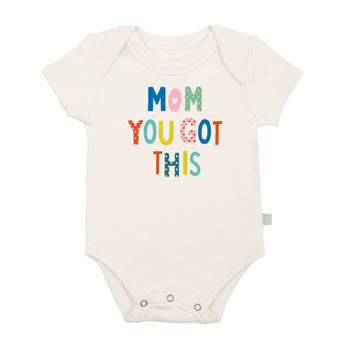Self-Care for New Mothers: Balancing Well-being with Motherhood
Motherhood is a transformative journey filled with joy, challenges, and infinite rewards. However, amidst the chaos of caring for a newborn, self-care often takes a backseat for new mothers. Balancing personal well-being with the demands of motherhood is not just beneficial but essential for sustained health and happiness. This article explores practical ways new mothers can incorporate self-care into their daily routines, ensuring they don't lose sight of their own health while nurturing their child.

Self-care extends far beyond the occasional spa day; it is about maintaining your health, balance, and wellness through practices that nourish both the body and the mind. For new mothers, self-care becomes a critical strategy to manage the physical and emotional upheavals that accompany the arrival of a new baby.
New mothers deal with a range of challenges, from sleepless nights to hormonal changes, each taking a toll on their physical and emotional well-being. The overwhelming responsibilities can lead to fatigue and stress, making it crucial for mothers to prioritize their health to maintain their vitality.
Essential Self-Care Practices
Physical Health
Physical recovery after childbirth is a gradual process that requires attention and care. Engaging in gentle exercise can help strengthen the body, boost mood, and improve energy levels. It’s also important for new mothers to nourish their bodies with balanced, nutrient-rich foods that fuel recovery and enhance energy. Eating a well-balanced diet helps restore strength and boost energy levels.
While a healthy diet is foundational, supplements can also play a crucial role. Looking into the best supplements for vitality and integrating them into your health regime can be a game-changer. ApportAL from PharmaNutra, for instance, is a top choice among these supplements. It provides essential nutrients that support overall health and well-being, featuring a unique formulation of proteins and amino acids that help strengthen the body during physically and mentally taxing times. Adding such supplements can ensure you receive the necessary dietary support to maintain optimal health.
Well-chosen supplements can fill nutritional gaps, especially when dietary intake may not suffice. Supplements designed to enhance vitality can provide necessary vitamins and minerals that boost energy and promote overall well-being. It’s important, however, to choose supplements that are safe and effective, ideally under the guidance of a healthcare provider.
Mental Health
Mental and emotional health is as crucial as physical health, especially after the birth of a child. Practices such as mindfulness meditation, deep-breathing exercises, and journaling can significantly alleviate stress. It's vital for new mothers to monitor their mental health and seek support when feelings of overwhelm or postpartum depression arise. Acknowledging and addressing these feelings early with the help of a professional can make a substantial difference in one's overall mental health.
Social Connections
Maintaining social connections can sometimes be challenging for new mothers, yet staying socially active is a key aspect of self-care. It helps in dealing with the isolation that can sometimes accompany motherhood. Whether it's joining a support group for new mothers, engaging in community activities, or simply staying in touch with friends and family, social interactions can provide emotional relief and a sense of normalcy amidst the new routines of parenting.
Time Management for Self-Care
Balancing the demands of a newborn with personal health requires savvy time management. New mothers often find that the day slips away with feeding, diaper changes, and comforting the baby. However, carving out time for self-care is essential for maintaining well-being.
Scheduling Self-Care
The key to incorporating self-care is intentional scheduling. Even if it’s just a few minutes a day, setting aside time specifically for self-care activities can make a significant difference. Simple strategies include using the baby’s nap time for a quick yoga session, a walk outside, or even a peaceful cup of tea. These moments, though brief, can recharge the mind and body profoundly.
Prioritizing Activities
Not all self-care activities are created equal, especially when time is scarce. New mothers should focus on what gives them the most significant benefit. For some, it might be a 20-minute workout; for others, it could be reading a book or taking a warm bath. It’s about quality, not quantity. By prioritizing activities that yield the most personal satisfaction and relaxation, mothers can maximize the benefits of their limited self-care time.
Incorporating Self-Care into Family Routines
As families adjust to the new dynamics that a baby brings, incorporating self-care into the daily routine can benefit everyone involved.
Involving the Family
Self-care does not have to be a solitary activity. Involving the partner or other family members can make it a part of the family’s routine. For example, taking daily evening walks as a family not only provides exercise but also fosters bonding and gives everyone a change of scenery. Similarly, engaging in partner meditation or light exercise can enhance relationships while maintaining health.
Setting Realistic Goals
It's important for new mothers to set achievable self-care goals to avoid feeling overwhelmed. These goals should be flexible and adaptable to the day-to-day realities of motherhood. If a planned activity isn’t possible one day, it can be shifted to the next. This flexibility helps maintain a steady commitment to self-care without the pressure of a rigid schedule.
Long-Term Benefits of Self-Care
Embracing self-care isn’t just about surviving the early stages of motherhood; it’s about thriving in the long run. Consistent self-care practices have long-term benefits that extend beyond the immediate postpartum period.
Enhanced Well-Being
Regular self-care improves overall health, reduces stress, and increases happiness. This enhancement in the mother’s well-being directly impacts her ability to care for her child and family. A happy, healthy mother is more equipped to meet the demands of parenting.
Better Family Dynamics
When a mother takes care of herself, she models healthy habits for her children and other family members. This modeling can foster a nurturing environment where each family member values and practices health and well-being.
Conclusion
Self-care is a vital part of the journey into motherhood. While it can be challenging to balance the many responsibilities that come with a new baby, integrating self-care practices is essential for the health and happiness of both the mother and her family. By setting realistic goals, managing time effectively, and involving family in self-care routines, new mothers can enhance their well-being and enjoy this special time with greater vitality and joy. Embrace these practices not just for survival, but for a flourishing life as a new mother.

















